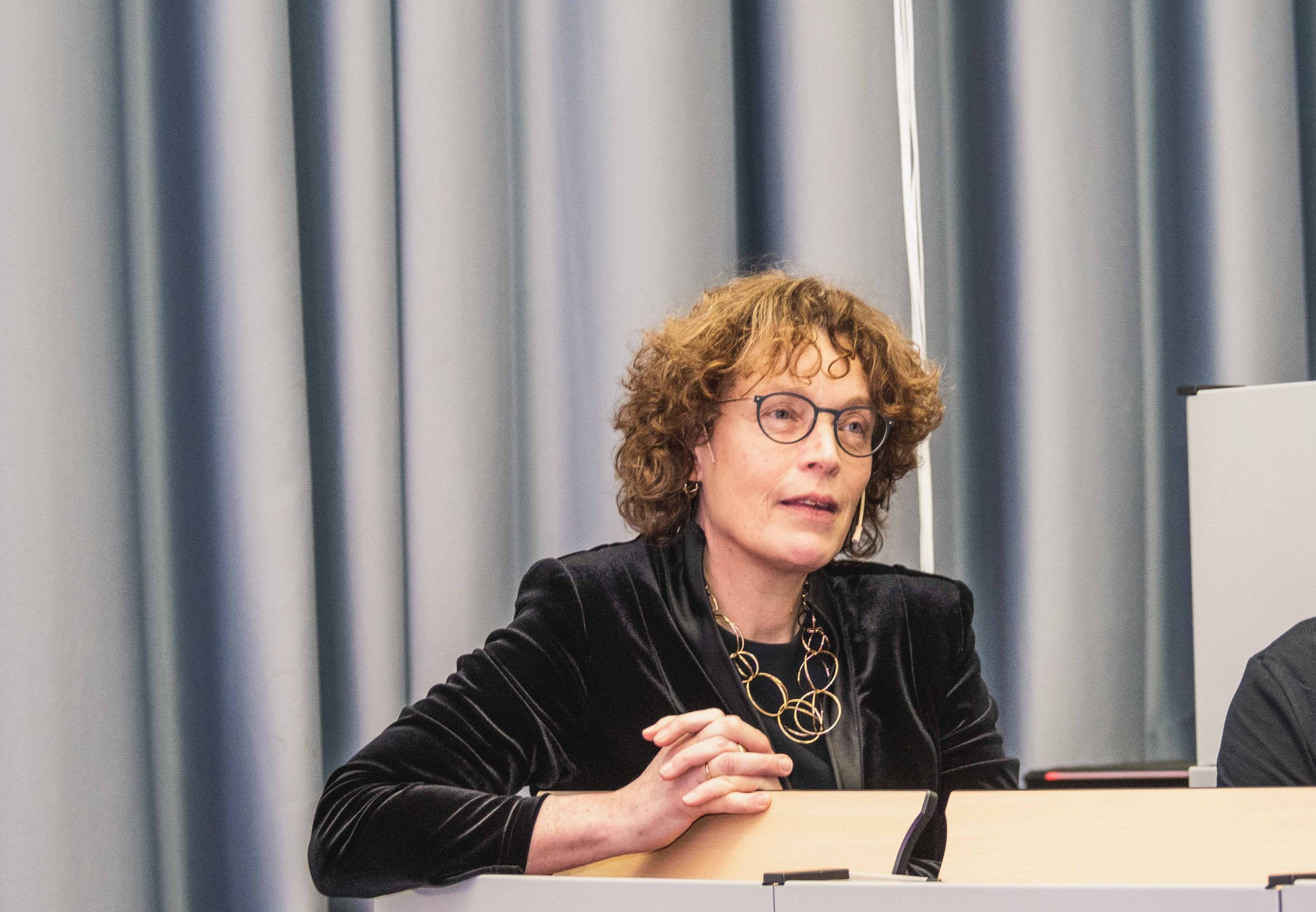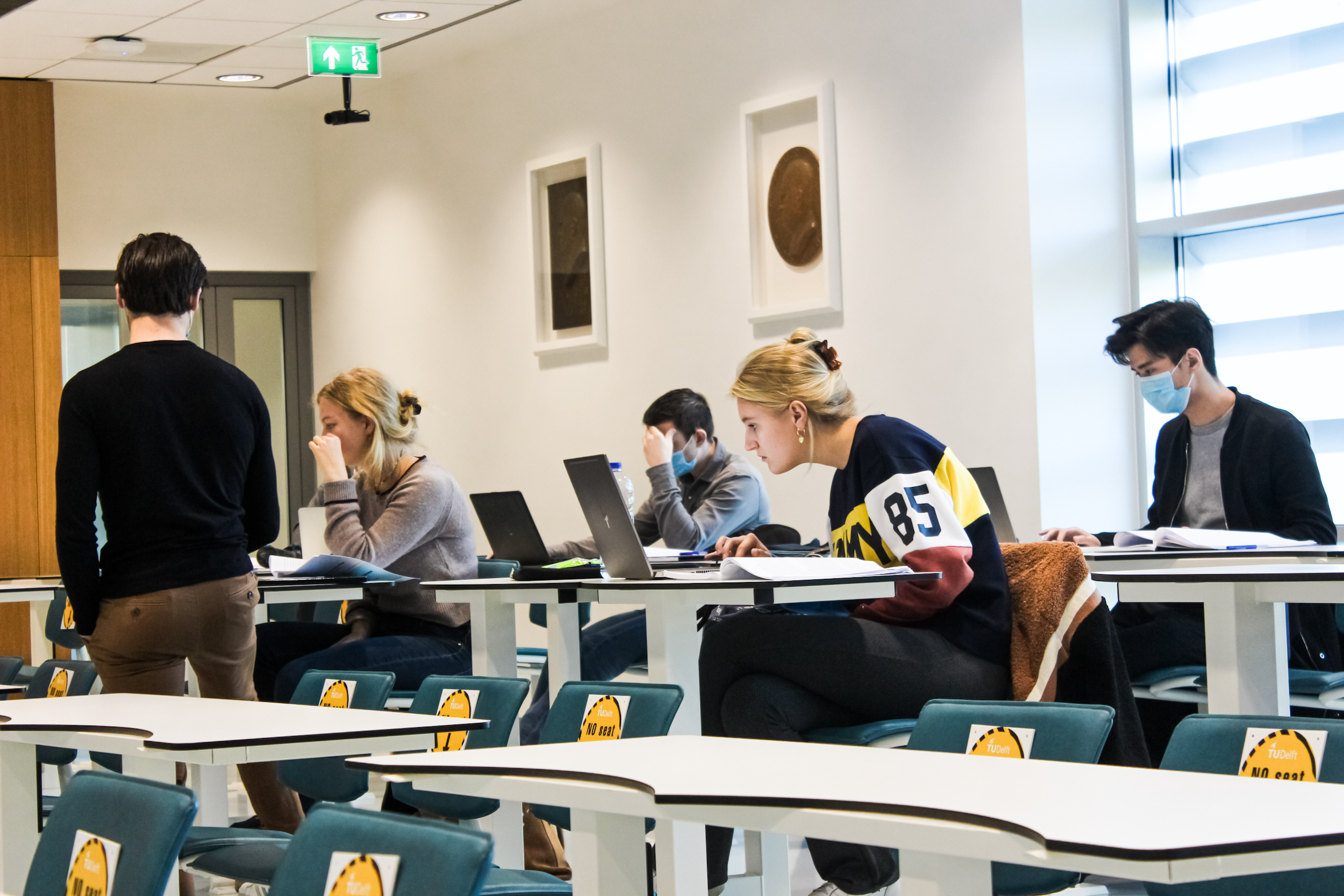Scientists are judged too much on their publications and too little on their contributions to education and valorisation, asserts a research committee led by Ena Voûte.
Teaching needs to be better valued. (Photo: Dalia Madi)
 Ena Voûte: “As a university, we must ensure that scientific knowledge benefits society more.” (Photo: TU Delft)
Ena Voûte: “As a university, we must ensure that scientific knowledge benefits society more.” (Photo: TU Delft)
The way research and researchers are evaluated and incentivized has to change. This was the conclusion of the Vereniging van Universiteiten (VSNU, Association of Universities in the Netherlands) in its 2019 ‘Ruimte voor ieders talent’ (in Dutch) report. Since then, universities have looked at how they can find a better balance between their three core tasks – research, education and valorisation. At TU Delft, this is done under the leadership of Ena Voûte, Dean of Industrial Design Engineering. Her Recognition & Rewards Perspective committee published TU Delft Recognition & Rewards Perspective 2021–2024 last week.
What issues are universities struggling with in the scientists’ assessment?
“One important issue is the scientists’ workloads. This has been too high for years. Teaching and developing educational materials take a lot of time and are undervalued. Scientists work on this on top of doing their research. If we would equate the value of this with the value for their research, scientists with a strong affinity with teaching and didactics could put more time into their teaching. Others could then concentrate on research.”
Would staff members then be able to specialise more?
“Yes. Teaching is one of TU Delft’s core activities, along with research and valorisation. So we need to have these in order. This would also mean that there could be more innovation in teaching and that we could support researchers to improve their didactic skills.”
‘The time span for which postdocs are hired is getting shorter and shorter’
Over the last few months you have had dozens of discussions with TU Delft staff – mostly with researchers – to inventory their problems and ideas. One striking outcome was that greater attention needs to be paid to the development of postdocs. Can you explain this?
“Postdocs have too little opportunity to develop themselves. The time span for which they are hired is getting shorter and shorter. They sometimes even get contracts of less than two years. This makes it hard to deploy them for teaching and supervising doctoral candidates while they themselves are often keen to do this. We need to see if we can give them longer contracts.”
Stimulating open science is also on your wish list. Why is this important in evaluating scientists?
“The focus should not be on the quantity, but on the quality of research. Quality also implies that you make data accessible for others. This is part of how you connect research to education and valorisation. We need to bring about a major change in culture.”
Are you not afraid that researchers who want to work abroad will be nervous about the new way of evaluating their work?
“It is always scary to lead change indeed. At the same time, this change in culture is happening elsewhere in the world too.”
What are you going to do now?
“We are creating the building blocks. We already have policy instruments that may help such as the result and development cycle, our leadership profile and the graduate school. We are revisiting them now. Further, all the Faculties have career committees that can learn from each other. They can share proven practices with each other to help stimulate career opportunities that have other elements than only research. A gap in the policy up to now is how to give greater priority to the core activity of valorisation. We still need to work much of this out. As a university, TU Delft needs to ensure that scientific knowledge is used for the benefit of society to a greater extent.”
Do you have a question or comment about this article?
tomas.vandijk@tudelft.nl


Comments are closed.